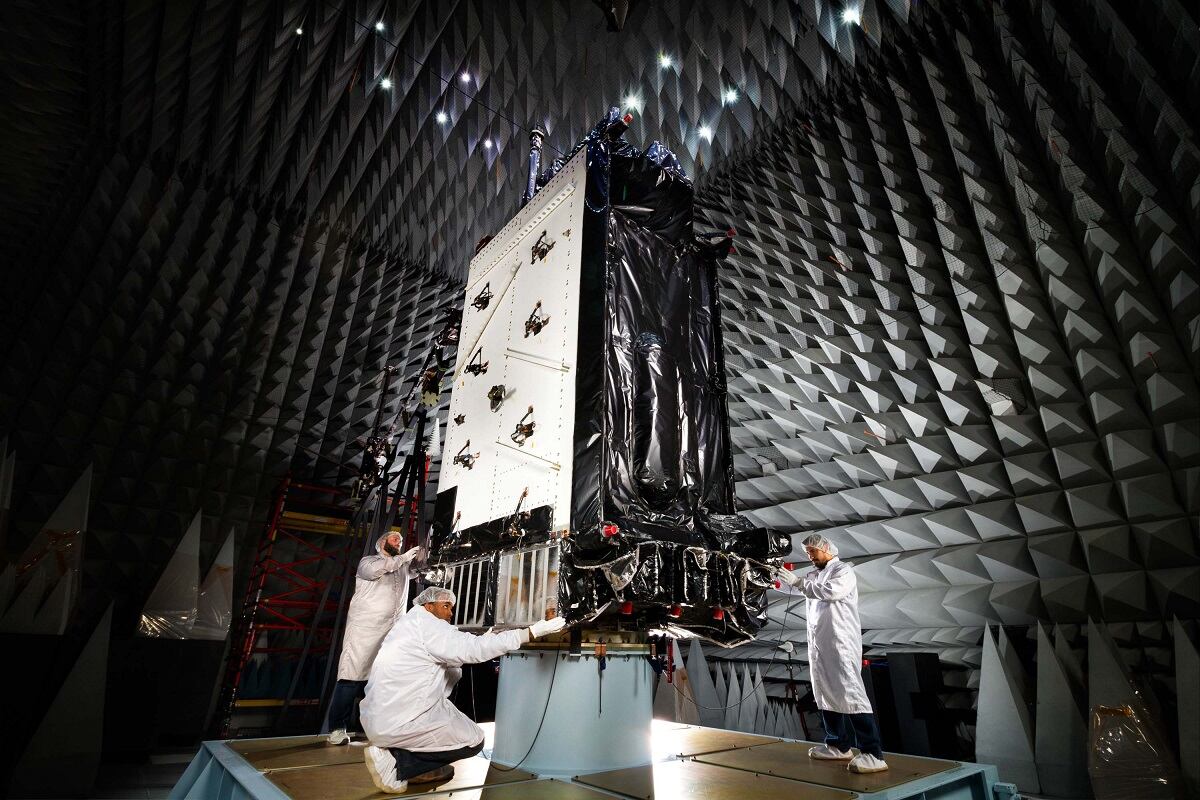The National Telecommunications and Information Administration has requested the Federal Communications Commission officially reconsider its vote in favor of Ligado Networks — while also filling a separate request for the commission to put a stay on the company’s plan, which critics have said will damage the Global Positioning System.
The request to reconsider the FCC’s April 20 vote, when it voted 5-0 in support of Ligado’s request to use the L-band spectrum, was made on behalf of the Department of Defense. Department officials indicated they would use the formal mechanism in hopes the FCC commissioners would reconsider their support for Ligado.
The NTIA requests that the FCC hit pause on Ligado’s approval until the commission can “meaningfully and promptly consider the appropriate metrics and mitigation procedures — and their realistic application to Ligado’s actual terrestrial network — before coordination and deployment efforts under the current conditions commence.”
RELATED

“Maintaining the status quo would be appropriate when a serious legal question is presented, if little harm will befall others if the stay is granted and denial of the stay would inflict serious harm,” the filling read.
The NTIA said it is filling the request “on behalf of the executive branch.” The FCC is directly responsible to Congress, not the executive branch, but the branch itself has not been united in its opposition: both Attorney General William Barr and Secretary of State Mike Pompeo have been supportive of the FCC’s move.
Because the FCC is outside the executive branch, it has independence from some of the legal constraints that apply to government agencies; in theory, that could also open the agency up to a lawsuit from the Pentagon, although such move would be extremely rare.
“The department remains opposed to the Ligado proposal and has made no secret of its intent to see the FCC’s recent approval of it reversed. Today’s NTIA filing on behalf of the DOD and other executive branch agencies is the first step in the process of seeking that reversal,” Pentagon spokesman Lt. Col. Robert Carver said in a statement.
“The Ligado proposal to repurpose spectrum adjacent to that used by the Global Positioning System for use in a terrestrial 5G network will do irreparable harm to GPS. Such a network in this spectrum space will adversely impact both military and civilian use of this critical service,” Carver added.
Countered Ligado spokeswoman Ashley Durmer: “This rehash of arguments put before the FCC over two years ago contains no new information or technical data to support its request that the FCC reconsider its recent unanimous, bipartisan decision."
“The FCC carefully analyzed and dismantled that argument in its 74-page Order, and we are confident that it will affirm its decision upon review. Maybe this is why Congress has raised so many concerns about what is happening at the NTIA and questioned its ability to play a positive role in critical spectrum management policy decisions,” Durmer added. “We remain confident that, after review, the FCC will stand firm with its decision.”
The stay request comes with four points to support it. The first, NTIA stated, is that there would be “substantial, irreparable harm” if the Ligado plan goes through.
Second, it is in the public interest if the FCC evaluates the technical issues “under more scientific rigor before applying it to a large number of GPS devices relied upon for national security and public safety.”
Third, the stay would not harm Ligado, as the NTIA cites public reports that the company does not expect to commence service within the next 18 months.
And finally, the stay request argued, the FCC is likely to reverse the decision anyway when it takes a better look at the case details.
That last point seems arguable at best, given both the unanimous vote in favor of Ligado and the tensions between the FCC and supporters of the DoD, such as Senate Armed Services Committee Chairman Jim Inhofe, R-Okla., who has accused the FCC of operating in secretary to slip the Ligado vote past opponents Through a spokesman, the FCC has dismissed those claims as “baseless fearmongering.”
Under the FCC guidelines, a re-vote is not required; the FCC can simply decide not to reconsider the Ligado matter. “We appreciate the support that our Ligado Order has received from high-ranking Executive Branch officials like Secretary of State Mike Pompeo and Attorney General William Barr," an FCC spokesman said.
In a statement, Inhofe said the NTIA move "underscores how imperative it is that we find a whole-of-government approach to electromagnetic spectrum sharing that involves both these agencies and other key stakeholders. We’ve got to balance both national security requirements and commercial industry needs — that’s the only way we can compete against China successfully.”
“The FCC should reconsider or rescind its Ligado Networks Order, given the likely harmful impacts it will have on GPS users nationwide. The risks are so great that the NTIA actually asked the FCC to stay its Order while the FCC considers the NTIA’s request. Will the FCC listen to the experts? I hope so — it’s well past time they do.”
Aaron Mehta was deputy editor and senior Pentagon correspondent for Defense News, covering policy, strategy and acquisition at the highest levels of the Defense Department and its international partners.








